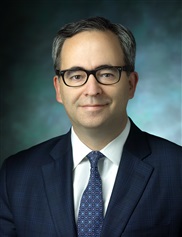Grants Funded
Grant applicants for the 2024 cycle requested a total of nearly $3 million dollars. The PSF Study Section Subcommittees of Basic & Translational Research and Clinical Research evaluated more than 100 grant applications on the following topics:

The PSF awarded research grants totaling over $650,000 dollars to support more than 20 plastic surgery research proposals.
ASPS/PSF leadership is committed to continuing to provide high levels of investigator-initiated research support to ensure that plastic surgeons have the needed research resources to be pioneers and innovators in advancing the practice of medicine.
Research Abstracts
Search The PSF database to have easy access to full-text grant abstracts from past PSF-funded research projects 2003 to present. All abstracts are the work of the Principal Investigators and were retrieved from their PSF grant applications. Several different filters may be applied to locate abstracts specific to a particular focus area or PSF funding mechanism.
Donor Dendritic Cells for Composite Tissue Allotransplantation
Justin Sacks MD, MBA
2005
University of Pittsburgh
Basic Research Grant
Technology Based
Complex musculoskeletal defects resulting from cancer, congenital absence and trauma represent a unique reconstructive challenge. Autologous tissue is often not available to reconstruct these deformities. Composite tissue allograft (CTA) transplantation offers a solution to this problem. Examples of these procedures include hand, limb, and potentially, face transplantations. Technical aspects of these procedures are known. However, the chronic immunosuppression that patients would require to tolerate these transplants would create side effects such as drug toxicity, opportunistic infections and malignancies. Novel techniques to limit immunosuppression for recipients of CTA transplantation are needed. Dendritic cells (DCs) are unique antigen presenting cells that have been shown to be inducers of tolerance in both in-vitro and in-vivo settings. In our plastic surgery lab we have a developed a protocol for the harvesting and phenotypic characterization of rat dendritic cells. In addition, an orthotopic rat hind-limb transplantation model has been optimized to study rejection phenomena. The hypothesis of this study is that the intravenous (IV) administration of donor derived immature myeloid DCs into a recipient prior to orthotopic hind-limb CT A transplantation along with a short course of low dose immunosuppression will prolong the hind-limb allograft survival and induce tolerance across MHC mismatched rat models.
 Justin M. Sacks, M.D. is an Assistant Professor in the Department of Plastic and Reconstructive Surgery at the Johns Hopkins University School of Medicine. A graduate in biology and society from Cornell University, Dr. Sacks received his medical degree from the Mount Sinai School of Medicine in New York City, where he also completed his combined general surgery and plastic surgery residency. He is currently faculty at Johns Hopkins where he works with his mentor, Dr. Lee, to help contribute to fundamental advancements in the field of vascularized composite allotransplantation, specifically focusing on the hand, face and abdominal wall reconstruction. His clinical interests include the reconstruction of all forms of acquired and oncological defects ranging from the head and neck to the breast, chest, abdomen, pelvis and extremities. He serves on the editorial boards of Plastic and Reconstructive Surgery, and has been an invited speaker at multiple institutions. He is fellow member of the American College of Surgeons and a member of the American Society of Plastic Surgeons, American Society of Reconstructive Microsurgery and Plastic Surgery Research Council. He is a founding member of the American Society of Reconstructive Transplantation.
Justin M. Sacks, M.D. is an Assistant Professor in the Department of Plastic and Reconstructive Surgery at the Johns Hopkins University School of Medicine. A graduate in biology and society from Cornell University, Dr. Sacks received his medical degree from the Mount Sinai School of Medicine in New York City, where he also completed his combined general surgery and plastic surgery residency. He is currently faculty at Johns Hopkins where he works with his mentor, Dr. Lee, to help contribute to fundamental advancements in the field of vascularized composite allotransplantation, specifically focusing on the hand, face and abdominal wall reconstruction. His clinical interests include the reconstruction of all forms of acquired and oncological defects ranging from the head and neck to the breast, chest, abdomen, pelvis and extremities. He serves on the editorial boards of Plastic and Reconstructive Surgery, and has been an invited speaker at multiple institutions. He is fellow member of the American College of Surgeons and a member of the American Society of Plastic Surgeons, American Society of Reconstructive Microsurgery and Plastic Surgery Research Council. He is a founding member of the American Society of Reconstructive Transplantation.